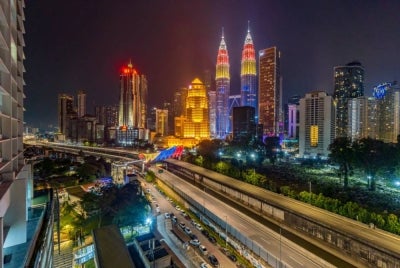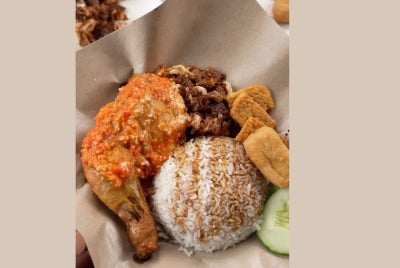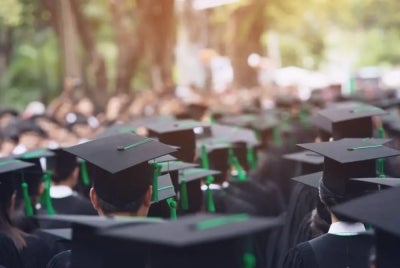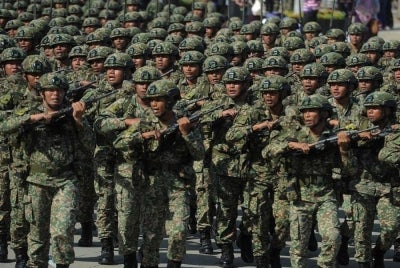Human rights advocates seek audience with PMX and Cabinet on the proposed citizenship amendments
MCRA remain very concerned about five of the proposed amendments which we consider very regressive, that will strip away constitutionally guaranteed citizenship rights for vulnerable groups of children, with long lasting consequences.
MALAYSIAN CITIZENSHIP RIGHTS ALLIANCE
Open Letter to Datuk Seri Anwar Ibrahim on March 21, 2024
We, civil society organisations under the umbrella of the Malaysian Citizenship Rights Alliance (MCRA), respectfully request to brief the Cabinet or alternatively YAB directly before the Government’s proposed amendments to citizenship rights are considered by Cabinet, and introduced in Parliament.
We support the government’s proposal to amend the Federal Constitution to give Malaysian mothers the equal right to confer citizenship to their overseas-born children.
We also understand the Government's need to ensure the safety and protection of all Malaysians and thus national security concerns.
However, we remain very concerned about five of the proposed amendments which we consider very regressive, that will strip away constitutionally guaranteed citizenship rights for vulnerable groups of children, with long lasting consequences.
Over the last nine months, we have sought to highlight to your administration that the regressive amendments as they are currently understood will be disastrous to the rights and interests of children, the structure of government accountability, and harm the legacy of this Madani government. Over the same nine month period, we have repeatedly tried to discuss our concerns directly with the Minister of Home
Affairs and relevant ministry officials, but they have refused to grant us an opportunity for meaningful discussion. Yet, our input on the proposed amendments – born of our collective knowledge, experience and expertise in this field – is vital.
We work on the ground; we advocate in the courts; we navigate the labyrinth of government systems and processes; we represent the vulnerable and the disenfranchised.
Because of what we know, over the last nine months, we have been able to correct numerous mistakes and mischaracterisations in the government’s claims about the far-ranging, negative impact of their regressive amendments.
Because of what we have seen in our work, we can say with authority that the regressive amendments will not solve the occurrence of statelessness; instead, it will exacerbate the problem, creating a newclass of invisible stateless persons in Malaysia, create more avenues for trafficking in persons, and corruption which this Government has campaigned to stamp out.
Because of what we have witnessed in dealings with public officials within the system, we can give voice to a legitimate fear that the regressive amendments will place more arbitrary power in the hands of faceless unelected public officials, which they could potentially wield without judicial oversight or proper accountability.
It is also because of our knowledge, experience and expertise that we are able to recognise when data and information presented by the government is questionable. This is of particular concern, as it is this erroneous data and information that is being used to misrepresent to the Cabinet, members of Parliament and the public the true situation and justify the Government’s proposed regressive amendments.
Here are some recent examples of questionable data and information from the Government:
1. Number of Foundlings
As part of their proposed amendments, the Government intends to remove Section 19B in Part III of the Second Schedule of the Constitution, which provides a pathway for abandoned babies to obtain citizenship by operation of law.
The Home Minister has tried to dismiss concerns about the negative impact of removing Section 19B, by claiming that only 142 submissions were made under Section 19B over a ten year period (2013 – 2023), all of which were approved – thus suggesting that the impact of the removal of Section 19B will be minimal.
However, the alleged 142 submissions do not represent the total number of foundlings and abandoned babies in Malaysia. According to the Minister of Women, Family and Community Development, police statistics indicate 256 cases of abandoned babies between 2020 to 2022 alone.
The police also received reports of 141 live babies over a span of four years (2018 - September 2021). The Home Minister’s figure of 142 approved foundling submissions also ignores the number of stateless foundlings or foundling-adults whose applications may have been rejected over that period, or those who did not submit applications because of fear or lack of knowledge, and who continue to try to survive in Malaysia without citizenship recognition.
Additionally according to DHRRA, the low numbers of citizenship submissions for foundlings are because many foundlings are either given the wrong forms, or issued green ICs instead of citizenship; and many such cases are thus taken to court to pursue the implementation of section 19B.
2. Marriages of Convenience
We are also given to understand that the government intends to amend Article 26(2) of the Constitution allegedly to curb ‘marriages of convenience’.
The Government’s proposal is to give itself power to strip a (previously) non-citizen wife of her Malaysian citizenship if the marriage is dissolved within two years after she obtains her citizenship.
However, in a recent answer given in the Special Chamber of the Dewan Rakyat on March 12, the Deputy Minister of Home Affairs admitted that the Ministry does not, in fact, have any data on ‘marriages of convenience’.
In other words, the Government is attempting to make a constitutional amendment to solve a ‘problem’ that it cannot prove exists.
3. Applications for Permanent Residence
In the same Special Chamber proceeding, the Deputy Minister of Home Affairs alleged that Permanent Residence (MyPR) applications are approved within 90 days of submitting a complete application.
However, in a 2022 survey involving 65 MyPR applicants, Family Frontiers found that application processing times varied from less than two years to more than six years; none of the applications were approved in 90 days.
4. Special citizenship registration power under Article 15A
The government is suggesting that once the amendments come into effect, applications for children born out of wedlock, adopted children who are stateless, and adult foundlings in Malaysia be processed under Article 15A.
However, it is understood that as part of its proposed amendments, the Government intends to remove the constitutional safeguard on statelessness in section 1(e) and reduce the eligibility of applicants under Article 15A from 21 years to 18 years.
As justifying good conduct on its part, on March 11 the Home Minister announced that since 2013, there have been 59,000 applications under Article 15A, of which 35,000 have been processed with a 98 per cent approval rate. There are still 14,000 pending applications to be processed.
DHRRA has pointed out that even if the ministry decides to approve the remaining 14,000 applications with an approval rate of 98 per cent, the Minister has also noted in a separate statement that over 1,000 new applications are submitted under this category on a monthly basis, and there is no guarantee that the alleged approval rate will continue should a new minister come into power and thus lead to the buildup of another backlog.
Moreover, section 1(e) must not be removed without addressing the root causes of statelessness among Malaysian families.
These examples of data deficiency or data inaccuracy show that the regressive amendments may not be adequately evidence-based. These examples also underscore the importance of halting the presentation of the regressive amendments until further study and consultation can take place.
What is at stake are the rights of Malaysian-born children, their dignity and their freedom to realise their potential. The political interests of the moment must surely take a backseat.
The preservation of national security is vital, but so too is the preservation of our nationhood and our collective humanity. Any efforts to resolve serious issues of concern regarding migration through porous borders must be evidence-based, transparent, and consultative.In that regard, we hope that YAB and the members of Cabinet will give us an opportunity to present our concerns and recommendations with regard to the Government’s proposed citizenship amendments.

Endorsements:
1. Aliran
2. ANAK Sabah
3. Angkatan Belia Islam Malaysia (ABIM)
4. Association of Women Lawyers (AWL)
5. Bait Al Amanah
6.Borneo Komrad
7. Buku Jalanan Chow Kit
8. Cahaya Society
9. Centre for Human Rights Research & Advocacy (CENTHRA)
10.Centre for Independent Journalism (CIJ)
11. CHILD Information, Learning and Development Centre.
12. DHRRA Malaysia
13. EMPOWER
14. Engage
15. ENGENDER
16. ERA Consumer Malaysia
17. EWRF
18. Family Frontiers
19. G25 Malaysia
20. GERAK (Pergerakan Tenaga Akademik Malaysia)
21. HSS Hindu Sevai Sangam
22. IDEAS
23. IMAN Research
24. Iskul Sama diLaut Omadal
25. Jaringan Orang Asal SeMalaysia (JOAS)
26.Johor Women's League (JEWEL)
27. Justice for Sisters
28. Kemban Kolektif
29. KESATUAN PELAJAR SEKOLAH ALTERNATIF
30. Klima Action Malaysia - KAMY
31. Lawyer Kamek
32. Liga Rakyat Demokratik
33. Malaysia Stateless Alliance
34. Malaysian Collaborative Practice Group (MCPG)
35. Malaysian CSO SDG Alliance (MCSA) (comprised of 90 member organisations)
36. Malaysian Hindu Dharma Mamandram.MHDM
37. Malaysian lndian Economic Transformation Association (MIET)
38. MHS ( Malaysia Hindu sangam )
39. National Human Rights Society (HAKAM)
40. NTFP-EP Malaysia
41. Our Journey
42. PACOS Trust
43. PASUMAI
44. Persatuan Kebajikan dan Kepenggunaan Malaysia.
45. Persatuan Pemangkin Daya Masyarakat (ROSE)
46. Persatuan Perkasaan Sosial dan Pembangunan Perusahaan Perai,Pulau Pinang (Perai SEEDS)
47. PERTUBUHAN BELIA HINDU PELABUHAN KLANG (HYO PORT KLANG)
48. Pertubuhan Pembangunan Wanita Tamarai Pulau Pinang
49. PERTUBUHAN PEMBANGUNAN & KEMAJUAN SEKOLAH TAMIL MALAYSIA (PPST)
50. Pertubuhan Rangkaian Usahawan Sosial (SeNeT)
51. Pertubuhan Titian Digital Malaysia
52. Project Liber8
53. Project Stability and Accountability for Malaysia (Projek SAMA)
54. PurpleLily Social Association Kuching
55. Pusat KOMAS
56. Rahman Solidarity League
57. Rahman Student League
58. Rural Consumer Organisation
59. Sabah Human Rights Centre (SHRC)
60. Sarawak AIDS Concern Society (SACS)
61. Sarawak Women for Women Society
62. SAVE Rivers
63. Sisters in Islam
64. Society for Promotion of Human Rights Malaysia (PROHAM)
65. Stateless Malaysian Citizenship Movement (SMCM)
66. Stateless.my
67. Suara Mahasiswa UMS
68. SUARAM (Suara Rakyat Malaysia)
69. SUSDEN Malaysia
70. Tamil Foundation
71. Tarbiyatun Nisa'
72. Teoh Beng Hock Association for Democratic Advancement (TBH-ADA)
73. Terabai Kenyalang Heritage Association of Sarawak (TKHAS)
74. The Center to Combat Corruption and Cronyism (C4 Center)
75. The Rise Malaysia
76. Undi18
77. Voice of Children (VoC)
78. Women’s Aid Organisation ( WAO)
79. Yayasan Chow Kit
Individuals/Activist/Advocates/Academicians/Experts
1. Agnes Padan, Sarawak Activist
2. Alanis Mah Siao Yen, formerly stateless person
3. Andrew Aeria, Social Researcher.
4. Andrew Khoo, Advocate & Solicitor, High Court of Malaya
5. Beatrice Leong, Autistic and Disability Rights Advocate
6. Beverly Joeman, Indigenous Woman, Sabah
7. Bill Jugah, Sarawak Human Rights Activist
8. Brenda Yong, Trainer
9. Cikgu Rahayu
10. Dato' Dr Amar-Singh HSS, Consultant Paediatrician, Child-Disability Activist.ju
11. Dato Dr Hartini Zainudin
12. Deborah Henry, host and advocate
13. Deva Kunjari Tun Sambanthan, lawyer
14. Dr Rodziana Mohamed Razali, Lecturer and Researcher
15. Dr Tamara Joan Duraisingam, Lecturer & Researcher
16. Dunstan Lim, Disability Activist
17. Esther Teo, Malaysian mother
18. Ita Bah Nan, Orang Asli Semenanjung.
19. Ivy Josiah, Women’s Rights Activist
20. Jasmine Wong Kah Man, Lawyer
21. Jo Kukathas, Activist Actor
22. Kasthuri Krishnan Child Rights Practitioner
23. Mark Chay
24. Mashithah Abdul Halim, mother of former stateless child
25. Mohammad Alshatri Abdullah
26. Muhammad Sha'ani bin Abdullah, Reform Advocate
27. Ranee Sreedharan Advocate & Solicitor, child Rights practitioner
28. Rebecca Ang, PLHIV advocate
29. Shanthi Dairiam, Founding Director international Women’s Rights Action Watch- Asia Pacfic,
CEDAW Expert and Activist
30. SP Nathan - Servebetter
31. Tina Yap, Social Worker
32. V. Mahesh Raam, Mgt Consultant
33. Wong Kueng Hui, former stateless & citizenship rights activist
34. Wong Yew Lee, Former Stateless Individual
35. Yuenwah San, disability rights advocate
36. Zaharom Nain, University Professor
Malaysian Citizenship Rights Alliance (MCRA) is an organisations and activists working to address statelessness and citizenship rights.
The views expressed in this article are the author's own and do not necessarily reflect those of Sinar Daily.
Download Sinar Daily application.Click Here!














